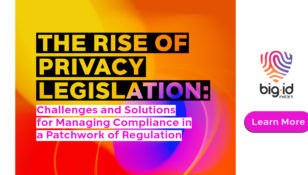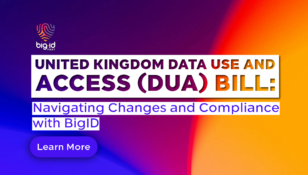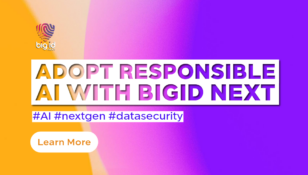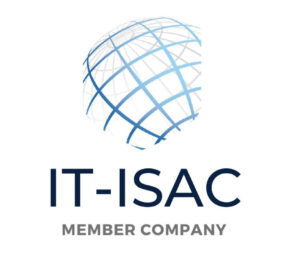Generative AI For Data Privacy: 5 AI Data Protection Abilities
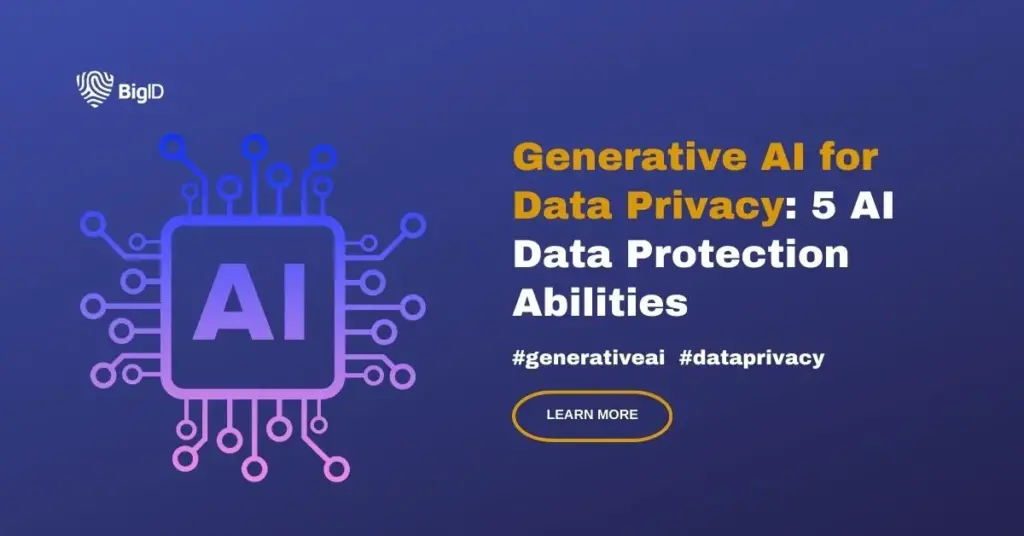
Generative Artificial Intelligence capabilities offer innovative solutions that empower organizations to protect sensitive information and safeguard individual privacy. This blog explores the five ways to use generative AI data privacy and harness the potential of this groundbreaking technology to manage your company’s privacy issues.
1. Personal Data Anonymization
Generative AI algorithms excel at anonymizing data. They allow you to extract valuable insights while preserving individual privacy. When you leverage generative AI-based techniques for data anonymization, you reduce the risk of re-identification.
Effectively de-identify personal information, and you can unlock the power of big data analytics without compromising privacy.
2. Differential Privacy
Data privacy largely refers to personally identifiable information (PII) or protected health information (PHI). If the information can’t be linked back to the data subject, it’s just a bit of random information.
Since AI models require large datasets to learn from, you do need to collect information from users. However, you can protect the data points from being identifiable or connected to the person they belong to. This is done through a process called differential privacy, crucial in privacy in the age of generative AI.
The process involves adding ‘noise’ to the dataset. Noise is redundant data that obscures the identity and personal details of the individuals whose information has been stored— without affecting the analysis and output of your system. Differential privacy allows the AI model to extract valuable insights from aggregated data while preserving the anonymity of individual contributors.
Studies indicate that implementing differential privacy in your data sets can decrease the chances of data leakage. This approach allows your organization to get the benefits of big data for analysis while ensuring the privacy of individual data points.
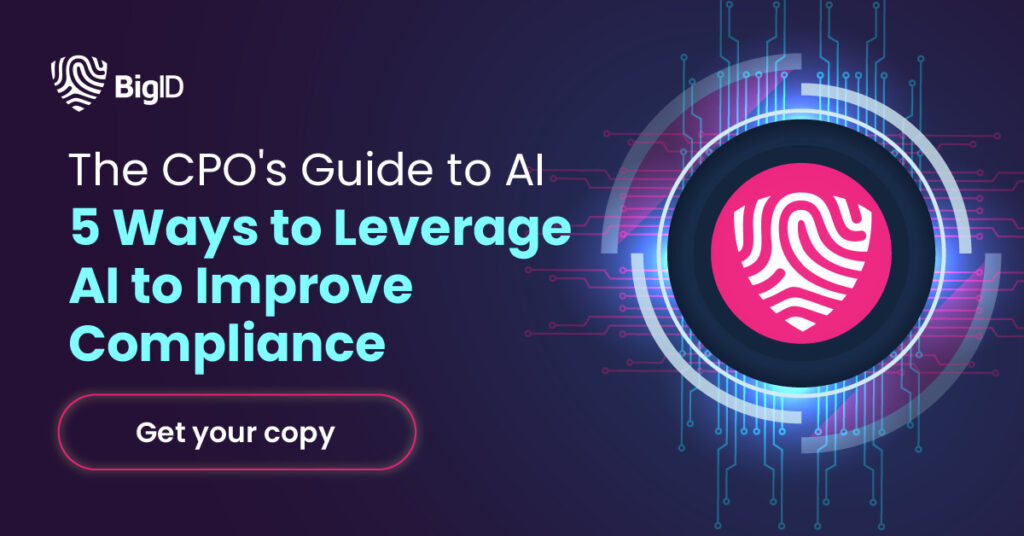
3. Privacy-Preserving Machine Learning
Generative AI enables privacy-preserving machine learning models. In these models, the data remains encrypted or obfuscated during training. Since it’s not decrypted at any point, it’s likely to be unusable if it’s stolen. While it doesn’t prevent unauthorized access to users’ information, it does lower the risk of stolen data being misused.
Research reveals that if you adopt generative AI-powered privacy-preserving techniques, you cut down the risk of data exposure during model training by up to 60%. By safeguarding data at the source, you can collaborate on machine learning projects without compromising the privacy of your datasets.
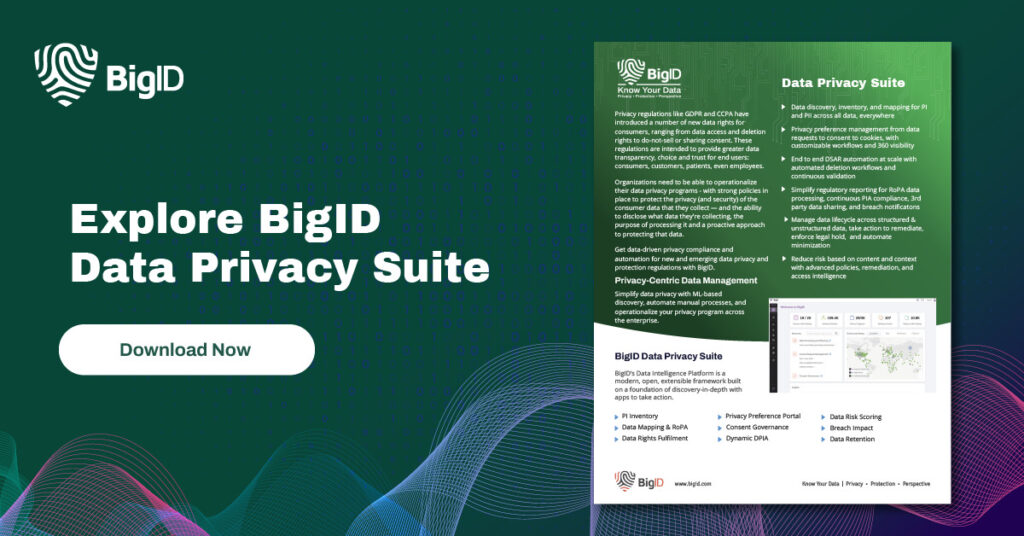
4. Secure Data Sharing
Generative AI offers a breakthrough solution for secure data sharing. It empowers organizations to produce synthetic data that preserves the statistical characteristics of the original dataset while safeguarding sensitive information.
Research indicates that leveraging generative AI methods in data sharing can substantially reduce the likelihood of privacy breaches by as much as 75%. This innovative approach enables seamless collaboration and information exchange among organizations — without compromising the confidentiality of personally identifiable data.
5. Robust AI Privacy Auditing
Generative AI provides powerful tools for privacy auditing. It allows your organization to assess the compliance of your data processing activities with privacy regulations.
Research indicates that incorporating generative AI-driven privacy auditing techniques reduces the time required for privacy audits by up to 50%. By automating the auditing process, you can proactively ensure your operations align with privacy standards and identify potential privacy vulnerabilities.
Generative AI capabilities are revolutionizing data privacy. They offer transformative solutions that protect sensitive information. At the same time, they enable businesses to unlock the value of data.
Generative AI has established a new era of privacy protection, where organizations can leverage data for innovation while upholding individual privacy rights.
Privacy Concerns With AI
Despite the many ways in which generative AI models help prevent privacy risks, they also come with certain challenges. AI ‘learns’ by going through vast quantities of training data. When these models are used to power large language models (LLMs), they can potentially generate content containing parts of the input data.
This training data is also at risk of exfiltration attacks — a type of data breach where the information that was used to train the AI system is stolen.
Also, if you integrate apps that don’t have appropriate data security algorithms incorporated into your business processes, you run the risk of compliance violations.
Your business needs to remember that all data may face the risk of being stolen or breached. It is your responsibility to maintain secure data collection, storage, processing, and use in compliance with regulations.
AI Privacy Laws
Generative AI systems, including chatGPT and other generative AI tools, have become quite mainstream. As the use of AI becomes more popular, countries are worried about its legal and ethical ramifications.
There are risks associated with using personal information for machine learning. AI models aren’t capable of forgetting information they’ve learned. If you don’t have safeguards installed, you risk the AI revealing this information.
Any personal data a business uses is already covered under data protection laws, such as the General Data Protection Regulation (GDPR) and the California Privacy Rights Act (CPRA). We also have the European Union’s AI Act (EU AI Act), with other countries also developing their own data protection and privacy laws.
With cross-border data transfers becoming the norm, businesses must comply with international laws and their country’s privacy regulations. Additionally, users need to give explicit consent for any data they share and businesses should be transparent about how the information is processed and used.
If you use a generative AI service for your organization, you must ensure it aligns with the recommended best practices, including data minimization, stringent AI governance, data minimization, stringent data governance and proper data handling.
How BigID Uses Generative AI Technology for Enhanced Data Privacy and Compliance
BigID is the most advanced data intelligence platform for privacy, security, and governance solutions. BigID’s standout feature is its automated data classification and categorization capabilities that leverage advanced AI and machine learning technologies.
It can help you identify and classify sensitive data across your organization’s entire landscape, whether across on-premises storage, cloud environments, or third-party applications.
BigID’s Privacy Suite provides a comprehensive and centralized view of your organization’s data privacy landscape.



